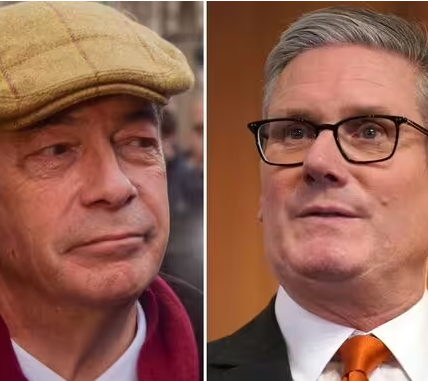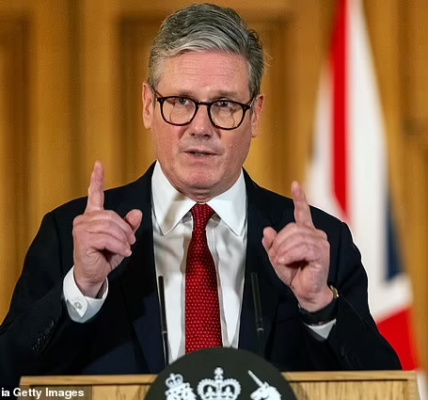Home Secretary Yvette Cooper admits she wants to speed up thousands of decisions on cases

Sir Keir Starmer with Home Secretary Yvette Cooper (Image: AP)
Migrants from Iran, Afghanistan, and Syria could have their asylum applications fast-tracked, it has emerged.
Some 118,882 people are currently waiting for their asylum claims to be processed, according to latest Home Office figures.
Home Secretary Yvette Cooper admitted she wants to speed up tens of thousands of asylum decisions, claiming it will reduce the burden on taxpayers.
The Home Office is building a system to fast-track such applications, Ms Cooper revealed.

Britain’s Home Secretary Yvette Cooper addresses the Interpol General Assembly (Image: AFP via Getty Images)
She said: “One of the things we’re doing is getting the decision-making sped up right across the board.
“We are also looking at ways in which we could develop a fast-track approach for predominantly safe countries, so that can be linked to much swifter returns as well.
“Because obviously, the longer cases get stuck in the system, which is what we inherited, actually, the more damaging that is, and the more costly the system is as well.”
However, it is highly unlikely any migrant from countries such as Iran, Afghanistan, Syria, Sudan, and Eritrea will be deported because it would breach human rights laws.
When asked if the Government should fast-track claims, Prime Minister Sir Keir Starmer said: “I think we should move all the cases through the system much more quickly.
“One of the problems we’ve got is that the last Government didn’t process the claims, and that left us in the worst of all worlds, which was unprocessed claims.
“More and more people being added to the list of people who need to be processed, all of them being housed in hotels, and you got into this complete fundamental problem.
“So, we do need to process claims. Obviously, we can triage them in terms of what can be done when, you know, we’ve got to get claims sorted out.
“I’m really glad that 9,600 people have been returned since the change of government in July.
“The last government talked about getting the planes off. We got the planes off, the single biggest plane with more people than ever, being returned in one journey under this government.
“Because one of the best deterrents is knowing that, should you make it through to the UK, you can be processed and returned if you’ve no right to be here very, very quickly, you can be back where you started.
“And we’ve lost sight of the importance of that deterrence. So we should fast-track both.”
Based on grant rates in the year to June, the Refugee Council predicted that as many as 62,801 people could be recognised as refugees.
This is primarily down to the large number of Afghans, Syrians, Eritreans, Iranians, and Sudanese people hoping to be granted leave to remain, the migrant charity said.
The Refugee Council said 96% of Afghans, who make up 10% of the backlog, are likely to be granted refugee status.
Figures also show 99% of Syrians, Eritreans, and Sudanese migrants are granted asylum.
Meanwhile, 82% of Iranians are allowed to stay.
More than 5,000 people crossed the Channel in small boats in October, making it the busiest month of the year so far for crossings.
In addition, more than 430 people arrived over the first two days in November.
The Government is also “watching closely” a scheme where migrants heading to Italy across the Mediterranean will have their cases processed in Albania.
Under the agreement, some 36,000 people a year deemed to be trying to reach Italy from “safe” countries are expected to be taken to the Albanian port of Shengjin, 45 miles south of the country’s capital, Tirana.
Pressed on what action could be taken against individuals who have thrown away their passport to hide their country of origin, the Home Secretary stressed: “We have, since the election, substantially increased the resources for returns and enforcement.
“There will be all kinds of evidence around people’s identity, it’s not just dependent on the particular passport people have.
“We develop as part of returns arrangements with other countries, agreements and arrangements for being able to identify people even if they don’t have passport.
“That has been done in the past, continues to be done, and we believe that work can be expanded as well.”


